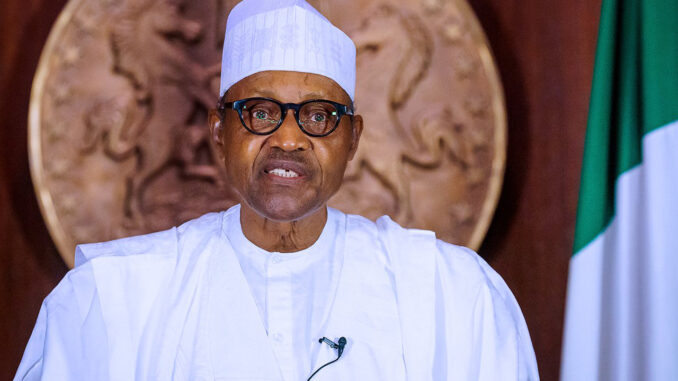
SLENDER hopes of an upturn in Nigeria’s debilitating job market appear infeasible for now. This has just been reinforced by a pronouncement from the head of the country’s economic advisory body. Ahead of the news of recession by the National Bureau of Statistics, Doyin Salami, chairman of the Presidential Economic Advisory Council, highlighted the country’s precarious unemployment situation. The President, Major General Muhammadu Buhari (retd.), and his economic team have a lot to do to reverse the escalating joblessness.
Salami blames the severely depressed economy for the unemployment fiasco. He postulated that only a steady creation of 19 million jobs “yearly” would ameliorate the crisis, and argued that the overdependence on the Federal Government’s spending was constricting economic growth. For Salami, time is ripe for alternative models, rather than emphasis on the centre’s limited spending power. “If Nigeria’s economy is going to grow, investment is going to be at the heart of that growth,” he said at a recent webinar organised by the Nigeria Governors’ Forum and the Nigerian Investment Promotion Commission.
At present, Nigeria’s investment-to-GDP ratio is meagre; hovering between 15 and 18 per cent, but Salami says it must not fall below 25 per cent in the next decade to have positive impact. That is a tall ambition. Oil, the mainstay of the economy, is at a low point, depressed further by the coronavirus pandemic. Electricity output is unreliable, fluctuating between 3,000 and 5,000 megawatts. It fuels factory closures and job losses. Insecurity is widespread, coupled with a declining FDI profile. Road infrastructure is shabby nationwide, the seaports are losing money amidst import dependency for household basics and a forex crisis is threatening to deepen the economic recession. At 3.2 per cent growth rate per annum, population is rising much faster than GDP growth rate, a recipe for disaster.
Before now, the situation had not been better, as unemployment had been biting hard on Nigerians. Unemployment was 23.1 per cent pre-pandemic, but is now 27.1 per cent, the NBS says. Salami says unemployment/underemployment is 54 per cent and the youth rate is 64 per cent. Unfortunately, as the youth population grows, so does the unemployment rate. And so does the crime rate. With the pandemic, Labour Minister, Chris Ngige, said the government forecast an unemployment rate of 33.5 per cent by the end of 2020. A recent survey said 42 per cent of workers lost their jobs to the pandemic. Vice-President Yemi Osinbajo said that job losses might reach 39 million by year-end.
Despite all this, there is no sea change in government. The 36 sub-national governments are still morbidly reliant on the monthly federal allocation. With receipts from oil dwindling, state governments have found it hard to cope. A majority of them owe public workers salaries and they have little funds for capital development. It is a losing formula. In the United States, state governments operate independently of the centre as economic units. Concentrating wisely on its areas of strength, including ICT and agriculture, California’s GDP is rivalling that of France and the United Kingdom. In Nigeria, state governments are beggarly. It ought not to be so. State governors should transform their states from mere administrative centres to dynamic economic drivers.
By holding on to the commanding heights of the economy, the Federal Government is operating a retrogressive economic system. This accounts partly for Nigeria’s receding Foreign Direct Investment inflows, without which the economy cannot grow or create jobs. Debts are mounting as the Buhari regime embarks on a borrowing binge in the belief that this will propel growth. That is not so.
Additionally, the World Bank rates Nigeria’s business environment very poorly. Its rating hovers around 140 perennially out of 190 countries in the ease of doing business, as its seaports and airports are in a shambles. Asue Ighodalo, the chairman of the Nigerian Economic Summit Group, states that the country is not attracting a cent of the $19 trillion global investible fund because the business climate is seen as “unwelcoming, unsafe and unpredictable.” Currently, it is difficult for even domestic investors to plough their capital in the North-East, where an Islamist insurgency has been raging for 11 years. In the North-West, banditry has become uncontrollable. Other parts of the country are not much better.
Maybe the simple solution is to try something different. In particular, privatisation, liberalisation and transparent concession arrangements will bring the inclusiveness that is sorely lacking now. As such, the loss-making refineries should be privatised. This will free resources for government to spend on social infrastructure. The moribund Ajaokuta Steel Company should follow to kick-start the manufacturing revolution.
The railway sector has the capacity to sustain a high number of jobs. Instead of his fixation on borrowing for it, Buhari should open it up to private capital. The regime should revive its executive orders on the ease of doing business and speed up electricity projects, empowering small and medium enterprises, which contribute 84 per cent of Nigerian jobs, according to PwC, to operate optimally.
Too many jobs have been lost to the prolonged land border closure in the transport, agriculture and services industries. Therefore, the government should use technology to dissuade smuggling and gunrunning ahead of re-opening. Government at the three tiers should cut down significantly on the cost of running government.
So far, most of the programmes on offer by the central government and states “are conceived with short-term gains in mind, and a little consideration of long-term perspective that may change the dynamics of unemployment substantially,” the Brookings Institution says. The structural changes needed involve taking a comprehensive approach to both the political and economic structures of the country. This means all hands must be on deck. Without fiscal federalism, there is little hope of economic rebound. As in the First Republic, when there was healthy competition, Nigeria is much better off by returning to this political system.
END

Be the first to comment